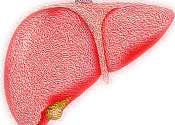Carbohydrate metabolism denotes the various biochemical processes responsible for the formation, breakdown and interconversion of carbohydrates in living organisms.
The most important carbohydrate is glucose, a simple sugar (monosaccharide) that is metabolized by nearly all known organisms. Glucose and other carbohydrates are part of a wide variety of metabolic pathways across species: plants synthesize carbohydrates from atmospheric gases by photosynthesis storing the absorbed energy internally, often in the form of starch or lipids. Plant components are eaten by animals and fungi, and used as fuel for cellular respiration. Oxidation of one gram of carbohydrate yields approximately 4 kcal of energy and from lipids about 9 kcal. Energy obtained from metabolism (eg, oxidation of glucose) is usually stored temporarily within cells in the form of ATP. Organisms capable of aerobic respiration metabolize glucose and oxygen to release energy with carbon dioxide and water as byproducts.
Carbohydrates are a superior short-term fuel for organisms because they are simpler to metabolize than fats or those amino acid portions of proteins that are used for fuel. In animals, the most important carbohydrate is glucose; so much so, that the level of glucose is used as the main control for the central metabolic hormone, insulin. Starch, and cellulose in a few organisms (eg, termites, ruminants, and some bacteria), being both glucose polymers are disassembled during digestion and absorbed as glucose. Some simple carbohydrates have their own enzymatic oxidation pathways, as do only a few of the more complex carbohydrates. The disaccharide lactose, for instance, requires the enzyme lactase to be broken into into its monosaccharides components; many animals lack this enzyme in adulthood.
Carbohydrates are typically stored as long polymers of glucose molecules with Glycosidic bonds for structural support (e.g. chitin, cellulose) or for energy storage (e.g. glycogen, starch). However, the strong affinity of most carbohydrates for water makes storage of large quantities of carbohydrates inefficient due to the large molecular weight of the solvated water-carbohydrate complex. In most organisms, excess carbohydrates are regularly catabolised to form Acetyl-CoA, which is a feed stock for the fatty acid synthesis pathway; fatty acids, triglycerides, and other lipids are commonly used for long-term energy storage. The hydrophobic character of lipids makes them a much more compact form of energy storage than hydrophilic carbohydrates. However, animals, including humans, lack the necessary enzymatic machinery and so do not synthesize glucose from lipids. <ref, G Cooper, The Cell, American Society of Microbiology, p 72>
All carbohydrates share a general formula of approximately CnH2nOn; glucose is C6H12O6. Monosaccharides may be chemically bonded together to form disaccharides such as sucrose and longer polysaccharides such as starch and cellulose.








